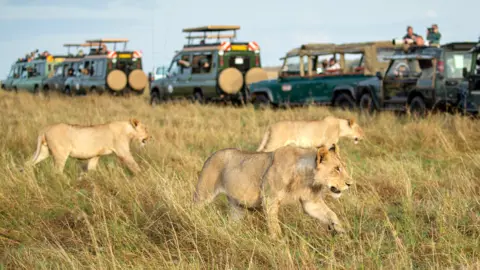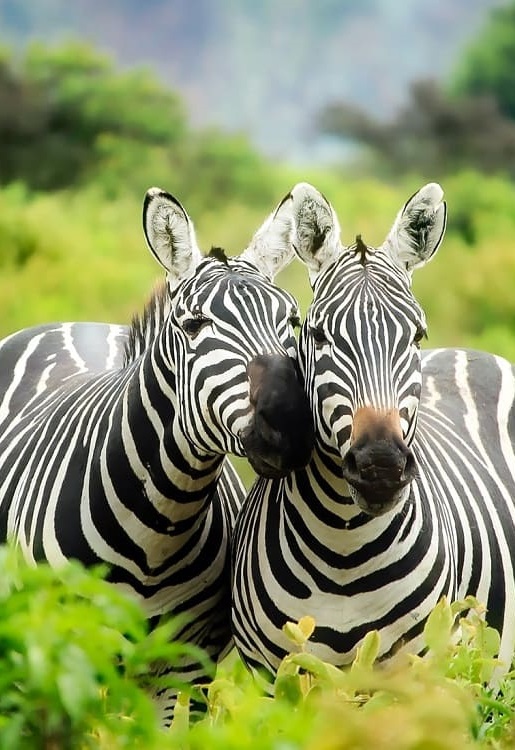Recommended News On Selecting Devil666 Websites
Recommended News On Selecting Devil666 Websites
Blog Article
What Security And Safety Precautions Should I Be Aware Of Before A Holiday In Mombasa Kenya?
It is crucial to keep an eye on the security and safety concerns while visiting Mombasa in Kenya. This will help ensure an enjoyable and stress-free journey. Here are some essential points to keep in mind:
1. General Security
Be informed. Keep track of local travel advisories and news from your home country.
Register at Your Embassy.
2. Health Precautions
Check for vaccinations: Ensure that you're up-to-date on routine vaccinations and consider additional vaccines such as Hepatitis A, Hepatitis B, Typhoid, and Yellow Fever.
Mombasa is a malaria-endemic area and is one to avoid. Use antimalarial medications, insect repellent, sleep under mosquito nets and wear long-sleeved shirts in the evening.
Water and Food Security Food Security: Drink bottled, boiling or cooked water. Avoid ice. Be cautious with street food.
3. Personal Safety
Avoid Walking Alone at Night Make sure you stay in areas that are well-lit and well-populated. Avoid walking on beaches or in secluded areas after it gets dark.
Secure your Valuables. Make use of hotel safety deposit boxes for valuables, such as money and passports. Do not display expensive items such as jewelry or electronics.
Choose a trusted transport service: Look for certified taxis, ride-hailing companies or transportation arranged by your hotel. Avoid unmarked taxis.
4. Local Laws and Customs
Dress respectfully and modestly Particularly when visiting places of worship. Be aware of the customs and beliefs within your community.
Drug laws: Kenya has strict drug laws with harsh penalties. Beware of any involvement in illicit drugs.
Photography: Always ask permission prior to taking photos of people, particularly in rural areas or military and government buildings.
5. Beach and Water Safety
Swimming safely means paying attention to local advice on currents and conditions. Use designated swimming areas.
Marine Life: Be aware of marine wildlife like jellyfish and urchins. Wear appropriate footwear when walking along the beach.
6. Crime Prevention
Petty crime: Bag snatching as well as pickpocketing is commonplace, particularly in crowded places. Make sure your possessions are in a secure place and be vigilant.
Scams: Be wary of strangers offering overly generous help or deals which appear too promising to be true. Make sure to use licensed tour operators.
It is important to know local emergency phone numbers for police (999), fire (999) and ambulance (999). The contact information of the consulate or embassy of your country is required to be easily accessible.
7. Natural Hazards
Weather: Mombasa is a tropical city that experiences heavy rains especially during the rainy season (April-June and October to November). Forecasts for weather are crucial.
Sun Protection: Apply sunscreen, put on a hat and drink plenty of fluids to protect against sunburn and heat exhaustion.
8. Travel Insurance
Comprehensive coverage. Be sure that the travel insurance you purchase includes protection for emergency medical situations, theft, and loss, as well travel disruptions. Make sure the policy you have includes protection for all activities, like water sports.
With these security precautions, you can relax and take in the beauty of your Mombasa vacation. Follow the most popular transfer to Diani for blog recommendations including safari mombasa kenya, trips to kenya, african safari excursions, tour mombasa, trip tour companies, tour agents in kenya, kenya safari and beach packages, tour agents in kenya, safari trips in africa, kenya safari and beach and more.
What Cultural Sensitivity Considerations Must Be Considered Prior To An Event In Mombasa?
While traveling in Mombasa, Kenya, being sensitive to the local culture is vital to ensure respectful interactions with local people and to enrich your trip experience. Here are some essential considerations.
1. Respect Local Dress Codes
Mombasa, Kenya has a large Muslim community. It's appropriate to dress modestly when in public areas such as religious sites, mosques, and local neighborhoods. This means wearing knee pads and shoulders.
Swimwear: Although swimwear is permitted on beaches, it is best to dress in layers if you are leaving the area, or going to restaurants or shops nearby.
2. Religious Sensitivity
Mosques: Get permission prior to visiting a mosque and wear modest attire. Hairdressers should cover their heads and remove their shoes.
Prayer Times: It is important to keep track of the five prayer times of the day and show respect during them, especially in the vicinity of the mosque.
3. Photography Etiquette
Permission: Always request permission before taking photos of people, especially in rural areas or in traditional environments. Some people might be uncomfortable and may think that it is intrusive.
Zones that are restricted: Do not take photos in sensitive areas including military installations, government buildings or sites of cultural significance, in which photography is not permitted.
4. Social Interactions
The manner of greeting people is crucial. A common greeting in Swahili is "Jambo" (Hello). For Muslim women, it is considered respectful to wait until they extend their hands or to salute with a verbal greeting.
Personal Space: Remember the need to be respectful of your personal space.
5. Cultural Rules and Taboos
Limit public displays of affection. They are generally frowned at.
The Left Hand should not be utilized. Use your right hand for eating, greet, and exchange goods or money.
Feet - It's considered rude to point your feet at them or show them.
6. Language and Communication
Basic Swahili. Just a few simple Swahili sentences are an effective way to show respect and establish rapport. The most commonly used phrases are "Asante" (Thank for your time) as well as "Habari" (How are you? ).
Politeness: Use patience and politeness in your communications. Kenyans are adamant about respectful and courteous interactions.
7. Respect for local customs
Traditional Practices: Respect the customs and rituals of the past. Follow your host's guidelines if invited to attend an event in the local area.
Bargaining is commonplace in local shops and markets. But, it must be done with respect and good humor. This is not a threatening practice and is more of a cultural one.
8. Alcohol and Smoking
Alcohol is readily available however it should be consumed in a discrete manner. This is especially important in areas with a significant Muslim population. Beware of drinking in public.
Smoking is generally forbidden in public spaces. Smoking zones are often marked.
9. Environmental Respect
Beware of littering: Don't litter and take care to dispose of garbage properly. Respect natural sites and wildlife.
Conservation: Help conserve the environment by respecting wildlife and habitats in the local area. Beware of buying products made from endangered species.
10. Assisting Local Communities
Local Businesses: Help local businesses, artisans and markets to positively contribute to the local economy.
Responsible Tourism: Choose sustainable, community-based tourism options that will benefit the local population.
By observing these guidelines on cultural sensitivity you can enjoy a more meaningful and respectful experience in Mombasa, enhancing your understanding and appreciation of the local culture. View the best park funzi for blog tips including kenya tours and travel, tours and safaris, tour firms in kenya, cheap kenya safari packages, kenya safari packages, facts about kenya, africa tours and safaris, tour agents in kenya, beach in mombasa, african safari excursions and more.
What Financial Planning Considerations Should I Be Aware Of When Planning My Next Holiday In Mombasa?
If you're contemplating a trip to Mombasa, Kenya be sure to budget your money well. This will ensure your trip is enjoyable. Keep in mind these key aspects of financial planning:
1. Budgeting
Accommodation: Make reservations for your accommodations well in advance. The cost of lodging can vary widely depending on its kind and its area.
Transportation: Include all expenses associated with local transportation, flights, (taxis matatus, taxis and tuks), as well as possible excursions.
Spend a budget for dining and food, including eating out and snacks. From budget-friendly eateries to expensive ones, costs can vary.
Make plans for tours and activities. This includes entrance charges for the attractions as well as guided tours, as in addition to activities such as safaris as well as water sports, cultural tours and more.
2. Rates of Exchange for Currency
Local Currency: The local currency of Kenya is called the Kenyan Shilling (KES). Know the exchange rate in effect.
Currency Exchange: Change money at reputable banks, currency exchange bureaus, or your hotel. Avoid exchanging money on the streets.
ATMs: Mombasa has many ATMs. Make sure that your card is able to handle international withdrawals.
3. Payment Methods
Cash: Bring some cash to make small purchases and for tipping. Also, bring cash just in case you need it in places which don't accept cards.
In restaurants, hotels and major shops Major credit cards can be used. Inform your bank as soon as you know your plans to ensure you can ensure that your card is not blocked.
M-Pesa: M Pesa has become an extremely popular mobile payment system in Kenya. It's an excellent option if are planning to use the SIM card for Kenya.
4. How to Save Money
Travel outside of season. You can save money on accommodation and flights by travelling in the shoulder season or the low-season (April-June and October through November).
Get your tickets early to secure the best deals on airfare and accommodations.
Local eateries - Dine at local eateries and food stalls for an authentic experience and cost-effective prices.
5. Tipping
Tipping is now an Kenyan custom. If you don't have service included, you must leave 10% at restaurants. Please tip the hotel staff along with drivers and guides.
The amount: A small amount in the local currency is highly appreciated. For example, tip the porters KES 50-100 for a bag and the housekeepers KES100 per day.
6. Emergency Funds
Reserve Funds: Keep an emergency fund and access to funds on your credit or debit cards in the event that you require them.
Travel Insurance: Buy complete travel insurance that covers medical emergencies as well for trip cancellations. It also protects you against theft and loss.
7. Security
Secure your valuables by using hotel safes to store passports, cash and other valuable items. If you are using ATMs in the dark be extra vigilant.
Avoid carrying large sums of money Don't carry large amounts of cash in your bag. Separate your cash and credit cards in your wallet, and then put them in an area that is secure.
8. Local Transactions
Bargaining in local markets is common. Approach it with respect and good humor, and try to negotiate a fair cost.
Receipts, records and receipts Keep records of your the major transactions and purchases. This is helpful to track budgets and also in case of disputes.
9. Understanding Fees
ATM and Bank Fees Contact your bank for charges for international withdrawals. Some ATMs could charge an additional fee for making use of foreign credit cards.
Charges for Currency Conversion: Be aware of the conversion costs for currencies you could be charged by your bank when you use your debit or credit cards abroad.
These financial planning strategies will help you manage your money while enjoying an enjoyable vacation in Mombasa. Have a look at the top rated Kenya safaris for site info including holiday packages mombasa, travel & tours company, kenya safaris, safari company kenya, tours and safaris in kenya, luxurious african safari, tour company in kenya, mombasa beach kenya, kenya travel packages, trips to kenya and more.